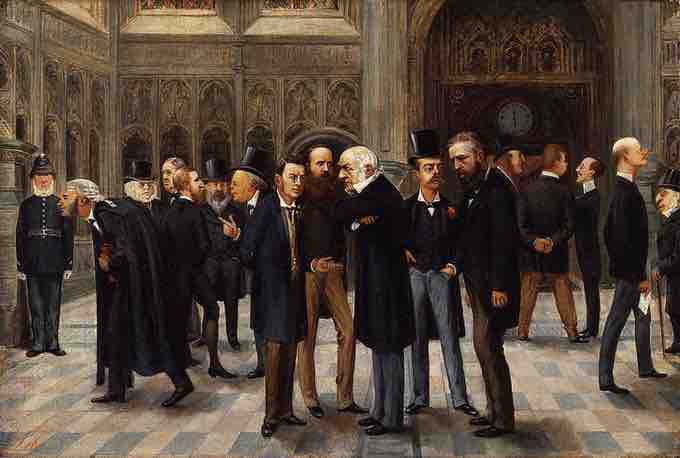Interest Group
The term interest group refers to nearly any voluntary association that seeks to publicly promote and create advantages for its cause. These diverse organizations include corporations, charitable organizations, civil rights groups, neighborhood associations, professional associations, and trade associations.
Special Interest Group
A Special Interest Group (SIG) is a community with an interest in advancing a specific area of knowledge, learning, or technology where members cooperate to affect or to produce solutions within their particular field. SIG members may communicate, meet, and organize conferences. At times they may also advocate or lobby on a particular issue or on a range of issues. However, they are generally distinct from advocacy groups and pressure groups which are normally set up for the specific political aim. The distinction is not firm though and some organizations evolve and change their focus over time.
Lobbying
Lobbying (also lobby) is the act of attempting to influence decisions made by officials in the government . Lobbying is done by many different types of people and organized groups, including individuals in the private sector, corporations, fellow legislators or government officials, or advocacy groups (interest groups). Professional lobbyists are people whose business is trying to influence legislation on behalf of a group or individual who hires them. Individuals and nonprofit organizations can also lobby as an act of volunteering or as a small part of their normal job. Governments often define and regulate organized group lobbying that has become influential.

The Lobby of the House of Commons
The Lobby of the House of Commons, painted in 1886 by Liborio Prosperi.
The ethics and morality of lobbying are dual-edged. Lobbying is often spoken of with contempt when the implication is that people with inordinate socioeconomic power are corrupting the law in order to serve their own interest. However, another side of lobbying is making sure that others' interests are duly defended against corruption. Lobbying can also make sure that minority interests are fairly defended against mere tyranny of the majority. Governments often define and regulate organized group lobbying.
Lobby groups may concentrate their efforts on the legislatures, where laws are created, but may also use the judicial branch to advance their causes. For example, the National Association for the Advancement of Colored People filed suits in state and federal courts in the 1950's to challenge segregation laws. Their efforts resulted in the Supreme Court declaring such laws to be unconstitutional.
Advocacy Group
Advocacy groups use various forms of advocacy in order to influence public opinion and/or policy. They have played and continue to play an important part in the development of political and social systems.
Some advocacy groups have developed into important social, political institutions or social movements. Some powerful lobby groups have been accused of manipulating the democratic system for narrow commercial gain. In some instances, they have been found guilty of corruption, fraud, bribery, and other serious crimes. As a result, lobbying has become increasingly regulated. Some groups, generally ones with less financial resources, may use direct action and civil disobedience. At times, they are accused of being a threat to the social order or 'domestic extremists. '
An advocacy group is a group or an organization that tries to influence the government, but does not hold power in the government. Smaller groups representing broad interests of a group may be formed with the purpose of benefiting the group over an extended period of time and in many ways. Examples are consumer organizations, professional associations, trade associations, and trade unions.
Advocacy groups exist in a wide variety of genres based upon their most pronounced activities.
Anti-defamation organizations issue responses or criticisms to real or supposed slights of any sort by an individual or group against a specific segment of the population which the organization exists to represent.
Watchdog groups provide oversight and rating of actions or media by various outlets, both government and corporate.
Lobby groups work to enact a change to the law or the maintenance of a particular law. Some lobby groups have considerable financial resources at their disposal. Lobbying is regulated to stop the worst abuses which can develop into corruption.
Legal defense funds provide funding for the legal defense for, or legal action against, individuals or groups related to their specific interests or target demographic.
Types
Organizations can be categorized along the lines of the three elements of commerce: business owners, workers, and consumers.
Employers' organizations represent the interests of a group of businesses in the same industry.
Occupational or labor organizations promote the professional and economic interests of workers in a particular occupation, industry, or trade, through interaction with the government and by preparing advertising and other promotional campaigns to the public. Such groups will also provide member services such as career support, training, and organized social activities.
Consumer organizations exist to protect people from corporate abuse, promote fair business practices, and enforce consumer rights.